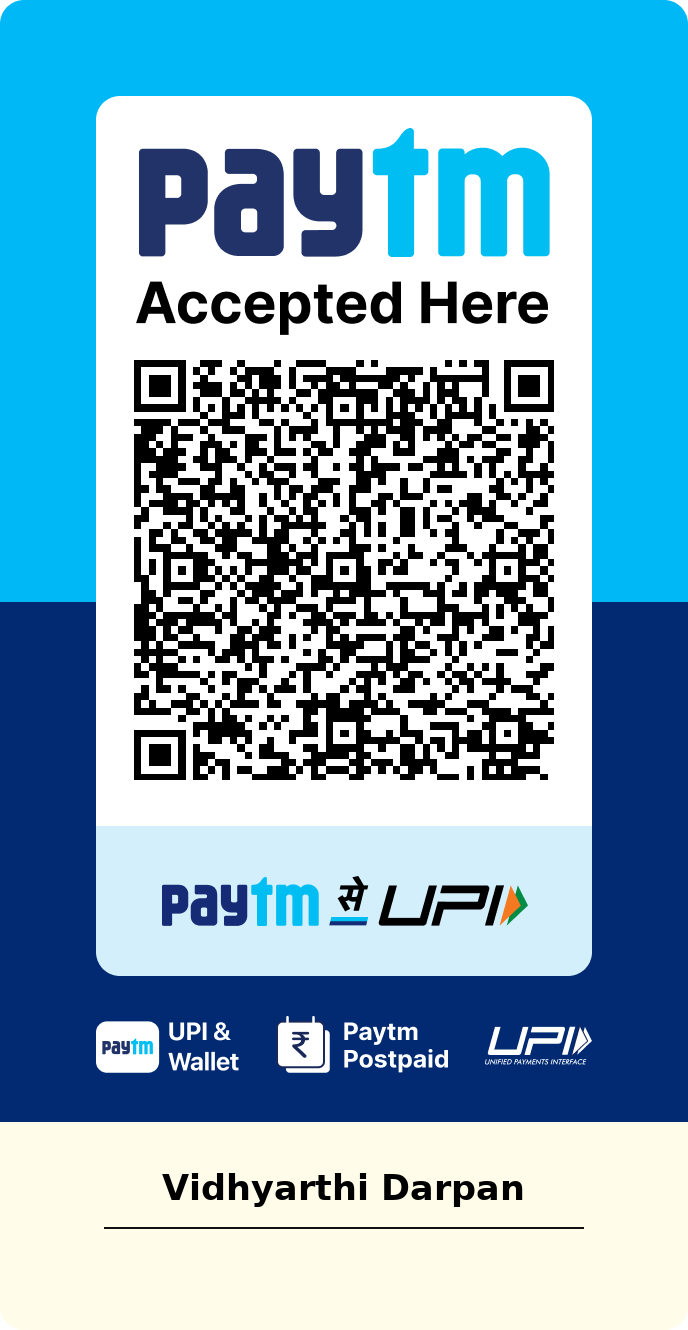Who Conducts NEET-UG ?
The parent body that conducts NEET exams is the National Testing Agency (NTA) that functions under the Ministry of Human Resource Development (MHRD), Government of India (GOI), and Medical Council of India (MCI).
National Testing Agency (NTA) came into existence in 2017 to aid in and ensure efficient, transparent, and reliable conduction of the examinations. NTA is an eminent, independent, and self-sustained testing organization that partakes in the proper dissemination of the national-level exams. It examines the student's proficiency for a medical career through a pen-paper or a computer-based test.
What is the scope of NEET-UG?
Being denoted as the best profession, Doctor is the first choice of many aspirants. Through NEET-UG, students get a portal to get into top colleges in India to gain initial training for becoming a well-qualified doctor. Along with MBBS, by clearing NEET, a student can also get admission into BDS courses, AYUSH courses, Paramedical Courses, etc. Moreover, after earning their undergraduate degree, students can pursue post-graduation in their preferred specialization, advancing their career prospects in the medical arena.
NEET is admittedly a laborious exam. The stringency of the NEET exam is a necessary evil that sieves out the potential candidates from the rest for a prestigious career in medicine. The validity of the NEET scorecard is only for the current academic year at which it is held.
What are the future aspects of NEET-UG?
Clearing NEET-UG is merely a stepping stone in the journey of earning a Doctor before your name. Indeed, NEET challenges the student's in-depth understanding of three subjects - Physics, Chemistry, and Biology - with more emphasis on Biology. It is majorly to ingrain and solidify the basics needed for entrance, in particular and medicine, in the expanse. Essentially, a doctor is a robust profession encompassing brainy and empathetic people.
The prospects of clearing NEET lies in the student's choice of course. MBBS and BDS courses are most opted by students, whereas others like BAMS, BHMS, BUMS, B.VSc (& AH) are also in demand.
How to apply for NEET-UG after the 12th?
The minimum criteria required for filling the NEET application form is a Higher secondary degree in Science with biology/biotechnology as one of the subjects.
Eligibility Criteria
To appear for the NEET exam, one needs to have passed 12th with an aggregate percentage of 50% with physics, chemistry, and biology as core subjects with English as a compulsory subject from a central recognized board or university.
Qualification for NEET Aspirants
|
Category
|
Qualification
|
Minimum Percentage
|
|
General (UR)
|
10+2 examination or equivalent from recognized board/university with Physics, Chemistry, Biology /Biotechnology, and English as compulsory subjects
|
50%
|
|
General PH
|
45%
|
|
SC/ST/OBC
|
40%
|
For NEET-UG 2021, candidates who have completed the age of 17 by 31st December 2021 or will complete the prescribed age as on or before 31st December 2021 are eligible to apply per the NTA NEET notification. There is currently no limit to the number of attempts by the candidate for the exam.
Age Limit for NEET Aspirants
|
Category
|
Minimum Age Required
|
|
General (UR)/General EWS
|
17 years
(Born on or before December 31, 2004)
|
|
OBC (NCL)
|
|
SC/ST/PwD/Transgender
|
Indian nationals, Non-Resident Indians (NRIs), Overseas Citizen of India (OCIs), Person of Indian Origin (PIOs), and Foreign Nationals applicants are eligible to appear for NEET 2021.
The application fee varies for categories. The application fee must be paid online during the registration process. Candidates can pay the fee online via debit card/credit card/Internet banking/UPI or PayTM. No other method of payment, including Challan or the offline mode, will be accepted. Please refer to the table below for an exact fee remittance.
Fee details of NEET Aspirants
|
Category
|
Application Fee
|
|
General (UR)
|
Rs. 1500/- (INR)
|
|
OBC (NCL); General EWS
|
Rs. 1400/- (INR)
|
|
SC/ST/PwD/Transgender
|
Rs. 800/- (INR)
|
NEET-UG - How to fill - flow chart
Candidates need to fill the online application form after the initial registration procedure. It is crucial to feed correct details to the system so that there is no discrepancy between original information and the filled details. Therefore, candidates should take utmost precaution and double-check after filling in information.
After successful registration, candidates can log in with the generated registration number and chosen password for further process.
Below is the step-wise flow chart you can refer to for filling in the application form.

NEET-UG Exam Pattern
NEET paper includes extensive questions mainly from the physics, chemistry, and biology field. Applicants need to have accurate knowledge of the paper pattern in order to manage time well and remain composed during the examination. The general instructions of the exam are as follows:
1) Mode of Examination: Pen & Paper (OFFLINE)
2) Exam Duration: 3 Hours
3) Total Number of Questions: 180
4) Weightage of Each Question: 4 marks
5) Overall Marks of the Examination: 720 marks
6) Penalty: 1 mark deducted for each wrong answer; 0 marks deducted for unattempt question
7) Candidates need to record their response by encircling (& darkening) the circles on the provided OMR sheet.
|
Subject
|
Number of Questions/ Marks Allotted
|
|
Physics
|
45 Questions
|
|
Chemistry
|
45 Questions
|
|
Biology
|
-45 Questions
|
|
-45 Questions
|
|
Total Marks
|
720 Marks
|
|
Marks for Correct Response
|
4 Marks
|
|
Marks for Incorrect Response
|
-1 Marks
|
NEET-UG Syllabus
Candidates should be well-aware of the NEET-UG syllabus to grab maximum marks in topics often asked in the examination. The main subjects are physics, chemistry, and biology (zoology and botany).
|
Physics
|
Chemistry
|
Biology
|
|
XI Class
|
|
Physical-world and measurement
Kinematics
Laws of Motion
Work, Energy and Power
Motion of System of Particles and Rigid Body
Gravitation
Properties of Bulk Matter
Thermodynamics
Behavior of Perfect Gas and Kinetic Theory
Oscillations and Waves
|
Some Basic Concepts of Chemistry
Structure of Atom
Classification of Elements and Periodicity in Properties
Chemical Bonding and Molecular Structure
States of Matter: Gases and Liquids
Thermodynamics
Equilibrium
Redox Reactions
Hydrogen
s-Block Element (Alkali and Alkaline earth metals)
Some p-Block Elements
Organic Chemistry- Some Basic Principles and Techniques
Hydrocarbons
Environmental Chemistry
|
Diversity in Living World
Structural Organization in Animals and Plants
Cell Structure and Function
Plant Physiology
Human physiology
|
|
XII Class
|
|
Electrostatics
Current Electricity
Magnetic Effects of Current and Magnetism
Electromagnetic Induction and Alternating Currents
Electromagnetic Waves
Optics
Dual Nature of Matter and Radiation
Atoms and Nuclei
Electronic Devices
|
Solid State
Solutions
Electrochemistry
Chemical Kinetics
Surface Chemistry
General Principles and Processes of Isolation of Elements
p- Block Elements
d and f Block Elements
Coordination Compounds
Haloalkanes and Haloarenes
Alcohols, Phenols and Ethers
Aldehydes, Ketones and Carboxylic Acids
Organic Compounds Containing Nitrogen
Biomolecules
Polymers
Chemistry in Everyday Life
|
Reproduction
Genetics and Evolution
Biology and Human Welfare
Biotechnology and Its Applications
Ecology and environment
|
It is to be mindful that the prescribed syllabus is subject to change for NEET-UG 2021 as per the reduction of the 12th syllabus by the Medical Council of India (MCI). As of now, the syllabus remains unchanged till further notice.
NEET-UG Cutoffs
Cutoffs are the minimum number of marks; one needs to score to be eligible for the admission process for the colleges. The cutoffs of NEET-UG varies for different categories. Refer to the below table for last year's NEET cutoffs:
|
Category
|
NEET Cut-Off Percentile
|
Cut-Off
|
|
General
|
50 Percentile
|
720-147
|
|
General-PH
|
45 Percentile
|
146-127
|
|
OBC
|
40 Percentile
|
146-113
|
|
ST
|
40 Percentile
|
146-113
|
|
SC
|
40 Percentile
|
146-113
|
|
OBC + PH
|
40 Percentile
|
128-113
|
|
SC + PH
|
40 Percentile
|
128-113
|
|
ST + PH
|
40 Percentile
|
128-113
|
Best Online Resources for NEET-UG Preparation
In this digitalized era, where even coaching classes are going online, there are many free online resources to help you understand complex concepts and stay motivated on your goal. For digital paid learning courses, you can join online platforms - Byju's, Vedantu, Aakash, Resonance, etc. Some of the free and subscription-based learning platforms are:
1) Khan Academy
2) Unacademy
3) UpGrad
5) GradeUp
6) OnlineBenchers
7) Toppr
8) NEETPrep
Courses offered through NEET-UG
1) MBBS (Bachelor of Medicine, Bachelor of Surgery)
2) BDS (Bachelor of Dental Sciences)
3) BHMS (Bachelor of Homeopathic Medicine & Surgery)
4) BAMS (Bachelor of Ayurvedic Medicine & Surgery)
5) BUMS (Bachelor in Unani Medicine & Surgery)
6) BVSc & AH (Bachelor of Veterinary Sciences & Animal Husbandry)
7) B Pharm (Bachelor in Pharmacy)
8) D Pharm (Diploma in Pharmacy)
9) BMLT (Bachelor in Medical Lab Technician)
10) DMLT (Diploma in Medical Lab Technician)
11) BPT (Bachelor of Physiotherapy)
12) DHMS (Diploma in Homeopathic Medicine & Surgery)
13) BNYS (Bachelor in Naturopathy & Yoga)
Alternate Career Options for Low NEET Rankers
Every year lakhs of medical aspirants register for NEET-UG to get into their dream medical college but, due to limited seats, only a little more than 8% of meritorious students make it through. Students who do not manage to land among the top 10,000 need not get disheartened.
Life does not stop, nor does learning. Students can go for other courses related to biology, medicine, and paramedical. Below is the list of the alternate path to regular MBBS and BDS that students can venture into for their future career:
i) B.Sc. (Microbiology)
ii) B.Sc. (Life Sciences)
iii) B.Sc. (Biotechnology) or B.Tech. (Biotechnology)
iv) B.Sc. (Radiology)
v) B.Sc. (Medical Lab Technology)
vi) B.Sc. (Operation Theatre Technology)
vii) BPT (Bachelor of Physiotherapy)
viii) B.Sc. Nursing (Bachelor of Science in Nursing)
ix) BOT (Bachelor in Occupational Therapy)
x) BNYS (Bachelor in Naturopathy & Yoga)
xi) Clinical Researcher
xii) Food Technology
xiii) Teaching in Science























